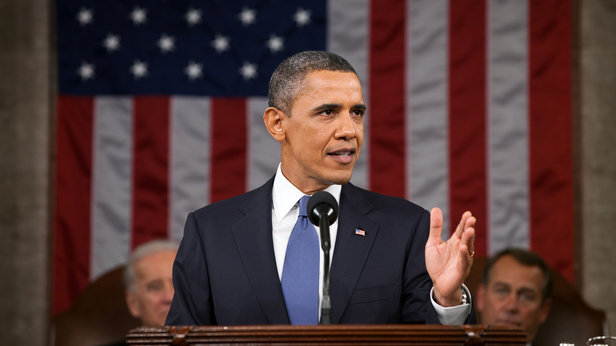
July 2, 2015
by James Wigderson
Special Guest Perspective for the MacIver Institute
“A man may take to drink because he feels himself to be a failure, and then fails all the more completely because he drinks. It is rather the same thing that is happening to the English language. It becomes ugly and inaccurate because our thoughts are foolish, but the slovenliness of our language makes it easier to have foolish thoughts.” – George Orwell “Politics and the English Language”
Orwell wrote that he believed the corruption of the English language was reversible. After reading Chief Justice John Roberts’ opinion in King v. Burwell, Orwell might have had more sympathy for the idea, “Our civilization is decadent and our language – so the argument runs – must inevitably share in the general collapse.” To fully understand the Robert decision we must consult the law firm of Derrida, Dada, Kafka and Dali. Ironically, the decision was released on Orwell’s birthday.
There are accusations that the Roberts decision was secretly welcomed by Republicans, especially Governor Scott Walker. Barry Burden, a political science professor at the University of Wisconsin, told the Capital Times the Supreme Court ruling set, “a nearly ideal course of events for Walker.” “He can continue to complain about the law without suffering much in the way of effects,” Burden said.
Why would anyone believe that? It was believed the Republicans would actually be the big losers if the subsidies went away in those states that did not create their own exchanges, Wisconsin among them. About 6.4 million people nationally could have lost their federal insurance premium subsidies, over 166,000 people in Wisconsin. Would Republicans have been blamed?
Possibly. Since Republicans are opposed to Obamacare, or SCOTUScare as Justice Antonin Scalia quipped in his dissent, and they would be blamed for bringing the lawsuit in the first place. Senator Ron Johnson told WTMJ’s Charlie Sykes at Insight 2015 of the tremendous pressure Republicans would have faced, especially at the state level. Governors in states without their own healthcare exchange would have faced pressure to sign anything the Obama Administration put in front of them making the federal exchange the state exchange, or else the pressure would be on them to create their own exchanges.
In Wisconsin, the pressure would have been especially acute due to the nature of the health care insurance market under Governor Walker. Instead of allowing an expansion of Medicaid to 138% of the poverty line, Walker changed the eligibility rules for the state’s BadgerCare program to fund insurance coverage for everyone under the poverty line and eliminating the wait lists for state-subsidized insurance under his predecessor. When the decision was made, it was estimated 83,000 people would receive coverage.
The result is that there is not a coverage gap, but that’s contingent on continued federal subsidies for those above the federal poverty line in the federal health care exchange. It’s why so many are echoing Burden’s analysis that Walker actually benefitted from the Supreme Court decision.
However, this misses a couple of key points. One, it was it was the Democrats who wrote the legislation that is Obamacare today, drafting flaws and all, and not the Republicans. If there was an “error” regarding state exchanges and the federal subsidies, and there is plenty of evidence to the contrary, the fault is with the Obama Administration and Congressional Democrats who forced the bill through without even taking the time to read it.
Two, unlike the Democrats, Congressional Republicans actually started planning for when subsidies would disappear by offering different subsidy plans to transition to a post-Obamacare health insurance marketplace. A consensus was not reached but it was likely that Congress would have sent a plan to the president to sign, putting the onus on him as to whether the subsidies would abruptly end.
Walker certainly was framing the debate in that way when he said that if the federal subsidies ended that it would be up to the federal government to fix the problem since Obamacare is a federal program. “States didn’t create this problem, Washington did. Governors across the country have been clear: If the Supreme Court strikes down the Obama executive overreach, we will not bail out Obama at the expense of the American people. We will not set up state exchanges under the rules of Obamacare.”
Instead of a political debate, and a political process, causing a change to a post-Obamacare world, Americans were given a Supreme Court decision that undermined the legitimacy of the court. The court has now become a political body rewriting the law, even ignoring the plain meaning of the law, for the sake of convenience. This is not an outcome that any conservative, running for president or not, would want. It puts any changes that the next president and the next congress might bring to Obamacare subject to the capriciousness of the members of the Supreme Court.
So no, the decision in Burwell v King was probably not welcomed by Walker, even secretly. As to who really gained from the decision, reporters can ask President Barack Obama when he makes his victory lap stop in La Crosse on Thursday. Unfortunately his temporary political gain has done permanent damage to our republic, and we have all lost.